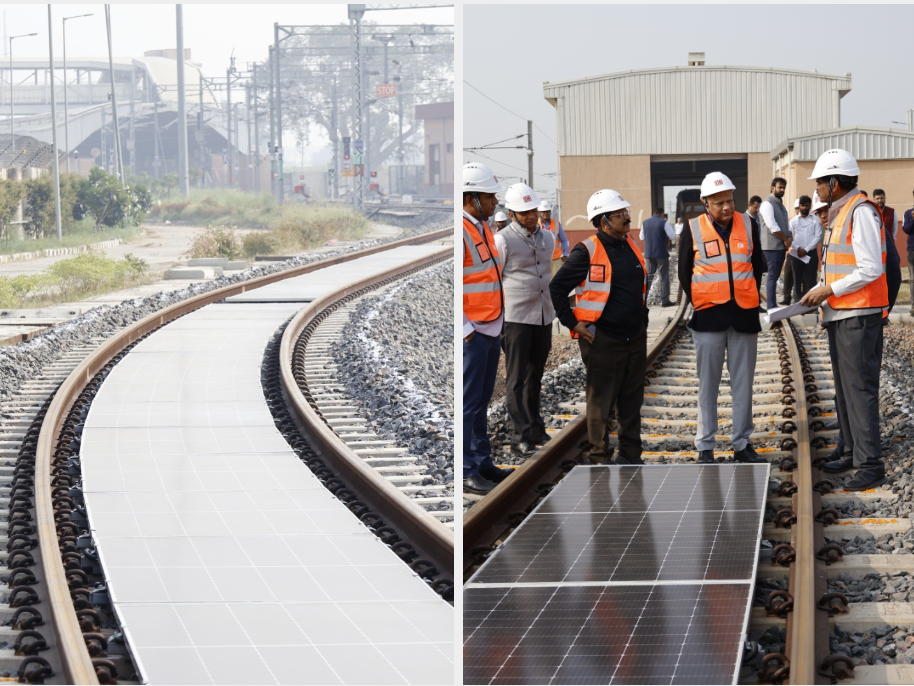Uttar Pradesh Switch to Hindi
NCRTC Launches India's First 'Solar on Track' System
Why in News?
In a significant step towards sustainable transport infrastructure, the National Capital Region Transport Corporation (NCRTC) has implemented a pioneering 'Solar on Track' system at the Namo Bharat Depot in Duhai, Ghaziabad.
- This initiative marks the first-ever installation of such a system in any RRTS (Regional Rapid Transit System) or Metro network in India.
Key Features
- About: The 'Solar on Track' project is part of NCRTC's broader solar policy, which aims to meet 70% of its energy requirements through renewable sources.
- Currently, NCRTC has operationalized 5.5 MW of rooftop solar capacity across various stations, depots, and buildings.
- The organization has set an ambitious target to achieve a 15 MW peak in-house solar generation.
- Solar Panel Installation: The project involves the installation of solar panels on a 70-meter stretch of the Pit Wheel Track.
- A total of 28 solar panels, each with a capacity of 550 Wp (Watt peak), have been installed, creating a total system capacity of 15.4 kWp.
- Energy Generation and Environmental Impact: The Solar on Track system is expected to generate around 17,500 kWh of electricity annually.
- This energy generation will contribute to reducing carbon dioxide emissions by an estimated 16 tonnes per year.
- Future Plans: NCRTC is also working towards integrating renewable energy into the traction systems for its rapid transit services, further reducing reliance on conventional energy sources.
- Rainwater Harvesting & Sewage Treatment: As part of its broader sustainability efforts, NCRTC has implemented rainwater harvesting systems and sewage treatment plants at its facilities, promoting water conservation and efficient waste management.
- Regenerative Braking Technology: NCRTC has incorporated regenerative braking technology in its Namo Bharat trains.
- This technology converts kinetic energy into electrical energy during braking, contributing to energy savings and enhancing the overall efficiency of operations.




.jpg)



.jpg)



.jpg)
.jpg)






-2026-web-eng.png)
-2026-mob-eng.png)
.png)


.jpg)



 PCS Parikshan
PCS Parikshan


